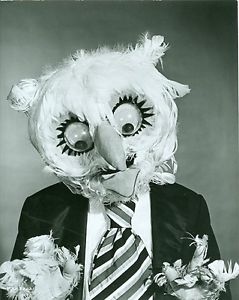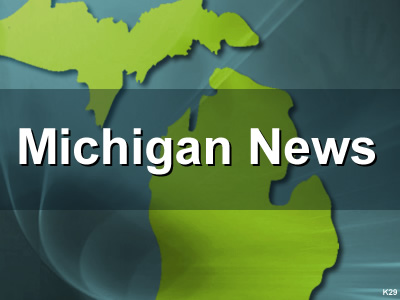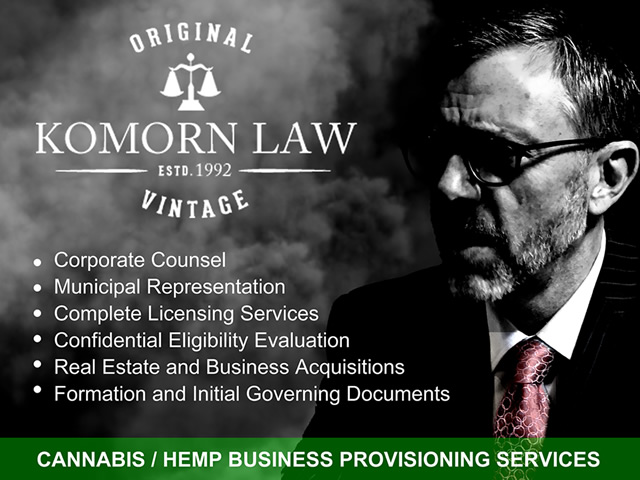
Are parents being wrongly accused by Child Abuse Pediatricians
(WXYZ) — They are called Child Abuse Pediatricians, and they say their mission is to protect children. However, local parents, attorneys and even some doctors say some of these specialists are tearing families apart.
The Parker family says they were emotionally and financially devastated after a false accusation of child abuse. Their lawyer says she’s had to fight against the same Child Abuse Pediatrician who accused the Parkers about 20 times, and they want to warn other families.
Allie and Jimmy Parker are grateful for every second with their children, Isabella and Dylan.
Last April, Child Protective Services workers took both babies from the Westland couple because one pediatrician accused them of abusing 6-week-old Dylan.
“I said why can’t we get a second opinion, why is this one physician’s opinion the end all be all to your decision to terminate our parental rights,” Allie said, adding that it was just how things go because the doctor was the expert.
The Parkers are talking about Child Abuse Pediatrician Bethany Mohr from the University of Michigan’s C. S. Mott Children’s Hospital. They’re not the only family who says Dr. Mohr’s accusation of child abuse tore their family apart.
“It’s been the hardest thing I’ve ever been through in my life,” said Josh Burns in 2015, after he was accused of abusing his daughter.
“I went to what I was told was the best children’s hospital in the state of Michigan,” said a mother who talked to us on the condition of anonymity out of fear that allegations would be reinstated. “They turned it all around on me. Blamed me for every part of it.”
Read more and watch the WXYZ news report here.
IF YOU HAVE BEEN ACCUSED OF CHILD ABUSE DUE TO MEDICAL MARIJUANA USE OR OTHER REASONS – CALL KOMORN LAW (800-656-7557)
OTHER STUFF
ANYHOW...Here is some information from the Council of Pediatricians Subspecialties…Ironically using the acronym CoPS.
SUB-SPECIALTY PEDIATRICS INVESTIGATOR NETWORK…
Ironically using the acronym (SPIN).
What does a Child Abuse Pediatrician do?
Child Abuse Pediatricians are responsible for the diagnosis and treatment of children and adolescents who are suspected victims of any form of child maltreatment. This includes physical abuse, sexual abuse, factitious illness (medical child abuse), neglect, and psychological/emotional abuse. Child Abuse Pediatricians participate in multidisciplinary collaborative work within the medical, child welfare, law enforcement, and judicial arenas as well as with a variety of community efforts. Child Abuse Pediatricians are often called to provide expert testimony in the court systems. This field offers the opportunity for involvement and leadership roles in community, regional and national advocacy, and in prevention efforts and public policy.
What are the career opportunities?
Most Child Abuse Pediatricians practice in academic settings and are responsible for patient care, teaching and research within an academic health center. However, there are other Child Abuse Pediatricians who practice in solely clinical settings such child advocacy centers, community hospitals and clinics.
What Board, if any, certifies Child Abuse Pediatrics?
Child Abuse Pediatric Boards are administered by the American Board of Pediatrics. Certification in General Pediatrics and completion of Child Abuse Pediatrics fellowship training are required for eligibility to take the subspecialty board examination.
What is the lifestyle of a Child Abuse Pediatrician?
Personal time and family life are essential to all physicians. Most Child Abuse Pediatricians balance the workload and stress of complex medical care with fulfilling personal life. Patient care, court testimony, teaching, research and administrative responsibilities vary depending on the specific position. In most centers, that ability to teach and conduct research provides academic enrichment that leads to a rewarding and balanced career and lifestyle.
What is the compensation of a Child Abuse Pediatrician?
Compensation is comparable to other academic pediatric subspecialties, but will vary depending on the geographic region, institution and specific responsibilities.
How do I become a Child Abuse Pediatrician?
Child Abuse Pediatrics training includes three years of fellowship training in an accredited Child Abuse Pediatrics fellowship program. Fellowship training includes medical evaluations of children with manifestations of acute and chronic child maltreatment, as well as children with a broad range of other diagnoses. The trainee develops expertise in determining non-accidental trauma and other forms of maltreatment by developing excellent diagnostic expertise and knowledge of various disorders which may mimic child maltreatment. Training will include mandatory reporting laws, legal proceedings, child abuse and family violence prevention, teaching opportunities, and clinical research.
Where do I find out about available programs?
Information about Child Abuse Pediatrics training programs is available on The Ray Helfer Society and ACGME websites, as well as FREIDA and ERAS websites. Child Abuse Pediatrics participates in the National Residency Matching Program (NMPR) Pediatric Subspecialties Fall Match. Applications through ERAS occur in July and August, with interviews in September and October. The Match occurs in November, the fall before the Fellowship starts.
Why should I choose to become a Child Abuse Pediatrician?
Child Abuse Pediatrics is an exciting field with opportunities for a broad clinical experience that includes multidisciplinary team work with medical and non-medical providers, contributions to investigative and legal proceedings, teaching a wide variety of audiences, clinical research, as well as, child abuse prevention and advocacy work. As a new subspecialty of the American Board of Pediatrics, there is tremendous opportunity to shape the future of this field and contribute to the health, well-being and safety of children.
Certifications
Eligibility Criteria for Certification in Child Abuse Pediatrics
The American Board of Pediatrics (ABP) has established a procedure for certification in child abuse pediatrics. In addition to the specific admission requirements listed below, General Eligibility Criteria for all ABP Subspecialties must be fulfilled to be eligible for certification.
ADMISSION REQUIREMENTS
Physicians who enter training in child abuse pediatrics on or after January 1, 2013, are required to complete their training in a program accredited for training in child abuse pediatrics by the Accreditation Council for Graduate Medical Education (ACGME) in the United States or the Royal College of Physicians and Surgeons of Canada (RCPSC).
A subspecialty fellow entering child abuse pediatrics training before January 1, 2010, may apply for admission on the basis of completion of 2 years of subspecialty fellowship training in child abuse pediatrics in a program under the supervision of a director who is certified in child abuse pediatrics or, lacking such certification, possesses appropriate educational qualifications. Only those child abuse pediatrics training programs that are operated in association with general comprehensive pediatric residency programs accredited by the ACGME or by the RCPSC will be considered. The Subboard requires that the period of training be at least 22 months, excluding leave. A Verification of Competence Form(s) will be required from the director(s) of the fellow’s child abuse pediatrics program(s).
Three years of full-time, broad-based fellowship training in child abuse pediatrics are required for fellows entering training on or after January 1, 2010.
Absences from Training
No continuous absence of more than 1 year will be permitted. Due to the potential for significant changes in medicine over time, the Credentials Committee must review requests for previous credit when a fellow has interrupted fellowship for more than 12 months.
Absences/leaves in excess of 3 months during the 3 years of training, whether for vacation, parental leave, illness, and so forth, must be made up. If the program director believes that the candidate is well qualified and has met all requirements, the program director may submit a petition to the ABP requesting an exemption to the policy. Training time cannot be waived for convenience, such as for fellows who begin training off cycle.
Part-time training may be completed over no more than 6 years.
For a fellow who began child abuse pediatrics training on or after January 1, 2010, the following must be accomplished in order to become certified in the subspecialty:
- A Verification of Competence Form must be completed by the program director(s) verifying satisfactory completion of the required training, evaluating clinical competence including professionalism, and providing evidence of scholarly activity/research.
- The fellow must meet the criteria stated in the “Principles Regarding the Assessment of Scholarly Activity”. Scholarly activity will not be required for individuals who began training before January 1, 2010.
- The fellow must pass the subspecialty certifying examination.
| ABP ID #: 1001911 Mohr, Bethany Anne Ann Arbor, MI United States of America |
| Certification AreaCertifiedCurrently Practicing in this Area of CertificationMeeting the Requirements of Maintenance of Certification in this area (Learn more)Child Abuse PediatricsCertificate# 122 Yes 2009 Yes (Learn more) Yes General PediatricsCertificate# 70689 Yes 2000 Yes (Learn more) Yes |




